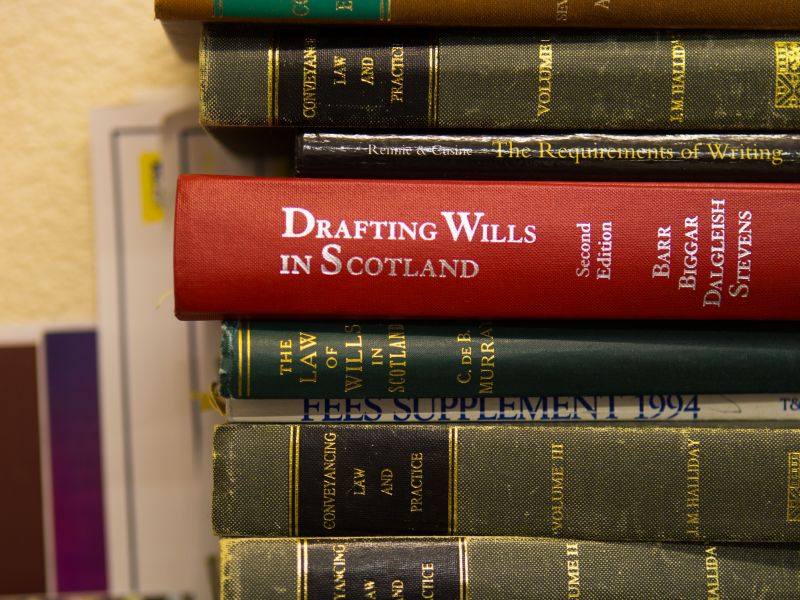Tips for making the sale of your property go through smoothly
A guide to help you through the various aspects of selling your home.
The following guide is intended to help you think about various aspects of the sale which might be relevant to you. Putting the following in place can go a long way toward making the sale of your property a smooth process, once an offer has been accepted.
Title Deeds
Do you know where your title deeds are?
· If you bought your house in Highlands after 2003, the title will be in the modern Land Register system, which is an electronic record. If you cannot find title deeds in the circumstance, your Solicitor will be able to readily download a copy.
· If you or your family have owned your home since before 2003, it is likely that the title is still in the older Sasine system. In that instance, there will be a bundle of title deeds somewhere. The most common locations for deeds storage is the client, the Solicitor or a bank. You can find more information about the Registers of Scotland systems in our blog post about making deeds digital.
· If you have had a mortgage for a long time, the mortgage lender might still be holding on to the deeds. Lenders tend not to hold deeds in the case of newer mortgages.
· If in doubt, please ask your Solicitor who can advise further.
How old is the house you are selling?
If your property is fewer than 10 years old, there should be an NHBC or equivalent new home warranty in place for the building. Alternatively, a professional consultant certificate might have been issued. There is a need for this paperwork if the house was built within the last 10 years.
If the house is fewer than 20 years old, you will need to give the purchaser the completion certificate issued by the local authority, for the original erection of the house. As a rule of thumb, if any structural alterations have been carried out to the house in the last 20 years, paperwork will need to be provided to the purchaser. These usually include:-
· Planning permission (but not every structural alteration requires planning)
· Building warrant. If the warrant refers to plans, the stamped plans will be needed as well
· Completion certificate.
This paperwork is generally not needed if the work was carried out more than 20 years ago, but you should nonetheless let your Solicitor know of any alterations when discussing the offer.
Who are the owners?
It might seem an obvious point to make, but it is only the owners of the property who can sell it. When taking instructions for a sale of a house, we need to have instructions from all co-owners. It is good for the Solicitor dealing with the sale to see the title deeds as early as possible so that there are no surprises in terms of who owns the property.
If the house is being sold under a Power of Attorney, the Solicitor will need to see the registered Power of Attorney document. The Solicitor might also take instructions from the person who granted the Power of Attorney in the first instance if that is appropriate.
The Mortgage
If you have a mortgage, you could make sure that you know your mortgage account number and have a recent mortgage statement available for your Solicitor.
If you are selling your property and buying elsewhere with another mortgage, your existing mortgage provider might offer you to “port” the existing mortgage over to the new house. Please note that while your mortgage product might remain in place, the existing mortgage is usually paid off with fresh mortgage funds issued by the mortgage lender. You should speak to your mortgage adviser if you have any further queries about that.
Factors
Is your home and surrounding area subject to a factoring or management scheme? If so, you should have those details ready for your Solicitor when discussing the sale.
Any balances outstanding to the factors are settled by the time that the house sale completes. At the end of a sale transaction, the factors sometimes ask the Solicitor to hold back a small sum of money to cover any outstanding balances. This can be discussed with your Solicitor.
Reports and Guarantees
If any smaller or miscellaneous work has been carried out for the house, or new appliances bought for the house in recent years, you should consider having all of the relevant paperwork in one safe place. Your Solicitor will ask you for these if needed, otherwise, it is recommended that they are kept in one location in the house for the purchaser to locate when the sale completes.







